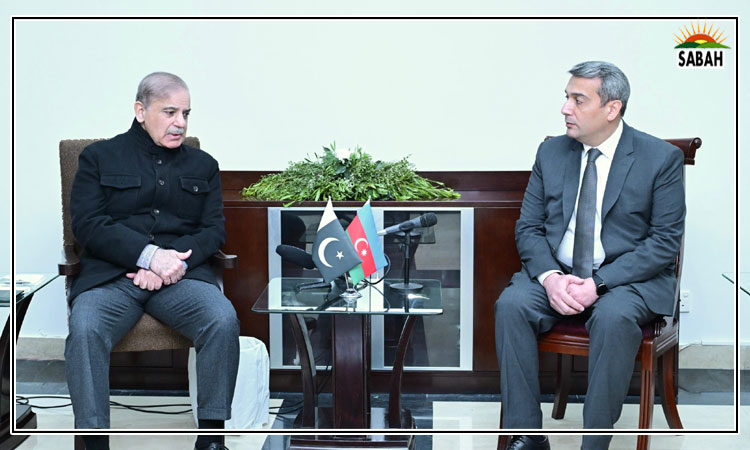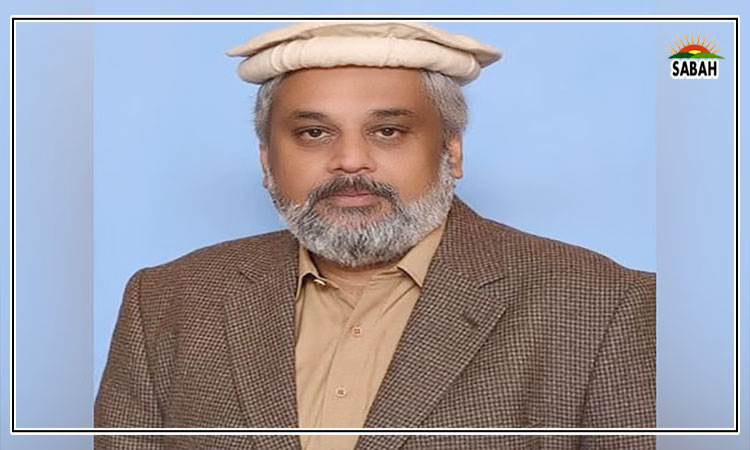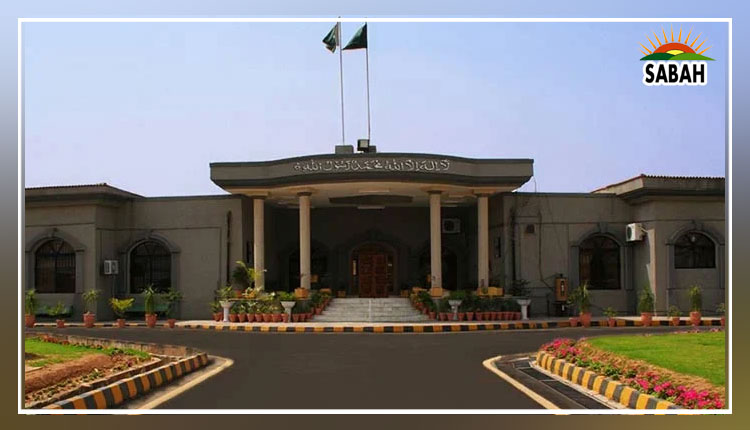CJ IHC Athar Minallah dismisses Asad Umar’s plea challenging imposition of Section 144 in capital for being ‘meritless’
ISLAMABAD, Oct 10 (SABAH):The Islamabad High Court (IHC) on Monday dismissed a plea filed by Pakistan Tehreek-e-Insaf (PTI) Secretary General and former minister for planning, development and special initiatives Asad Umar challenging the imposition of Section 144 in the capital, stating that decisions regarding the handling of rallies were taken by the executive authorities and a court was not equipped to substitute their assessments.
Section 144 of the Criminal Procedure Code restricts the assembly of gatherings exceeding four persons. According to a September 25 report by Dawn, police and administration officers confirmed that section 144 remained imposed in the capital.
Asad Umar had filed a plea in the IHC contending that the move should be declared “ultra vires to the express provisions of the Constitution”. It comes amid anticipation of PTI chief Imran Khan giving a call for a protest march towards that federal capital in a quest for what the party describes as “Haqiqi Azadi” (true freedom) and the government planning measures to tackle the march.
Chief Justice Islamabad High Court (IHC) Justice Athar Minallah took up the petition on Monday and dismissed it for being “meritless”.
The court order stated that no political party or group of persons could claim the right to hold rallies, protests or other assemblies in disregard to the principles and law highlighted by the apex court.
“The power conferred under section 144 of Cr.P.C. is meant to be exercised solely in public interest. An unregulated rally, protest or assembly definitely offends the guaranteed rights of the citizens who are not associated therewith.
“It is a constitutional obligation of the executive authorities to protect the rights of the public while considering a request by a group or political party to hold a rally or to organize protest or assembly,” it said.
The order stated that PTI had a significant membership in both houses and had an “adequate remedy by way of tabling a Bill regarding the repeal of section 144 of Cr.P.C”.
“In case the petitioners intend to take out a rally, or to organise a protest or assembly, then they are advised to approach the competent authority for seeking permission in accordance with the principles and law enunciated by the august Supreme Court,” the IHC added.
Earlier on Monday, Chief Justice Islamabad High Court (IHC) Justice Athar Minallah on Monday reserved decision on Pakistan Tehreek-e-Insaf (PTI) Secretary General and former minister for planning, development and special initiatives Asad Umar’s petition against the implementation of Section 144 in the federal capital. The court said that maintaining law and order is the job of the administration and the court will not interfere in the matter.
IHC Chief Justice Athar Minallah heard the case argued by Advocate Dr. Babar Awan on behalf of the petitioner.
According to the petition, Section 144 is an unconstitutional law to prevent peaceful protest. “The British created this colonial law that is still being implemented today,” it states.
During the hearing, Justice Minallah stated that the matter of law and order is to be looked after by the executive, adding that “the court will never interfere”. “When PTI was in government, was Section 144 not implemented in Islamabad?” he inquired.
Advocate Babar Awan told the court that the petition is not that of a political party but of a former MNA, Asad Umar. To this, IHC CJ noted that Umar is still an MNA.
Although Awan argued that Umar “resigned in front of everyone”, the judge maintained that until the resignation is accepted, the PTI general secretary remains an MNA.
Further, the chief justice remarked that the PTI has governments in two provinces and questioned whether Section 144 has never been implemented there.
“This party has a government in Punjab and Khyber-Pakhtunkhwa. First, abolish this law from those provincial assemblies and then come here,“ he added.
Advocate Awan argued that “this law can remain in force for a maximum of seven days or two consecutive days in a month. It is written in the law.”
The lawyer reiterated that the petitioner is a citizen living under the jurisdiction of the court. “I want to keep politics out of the court, I will talk about the constitution here. I don’t want to put my political plan before the court,” he said.
Umar’s counsel argued that if any law contradicts the constitution, the court can declare it “null and void”.
The chief justice said, “if you want to hold a rally, seek permission from the deputy commissioner”.
In his petition, Asad Umar prayed that Section 144 of the Code of Criminal Procedure, 1898 being a reflection of colonial legacy as adopted be declared ultra vires to the express provisions of the Constitution of Pakistan, 1973 as well as the fundamental rights guaranteed by the Constitution of Islamic Republic of Pakistan.
“It is further prayed that issuance of notifications under the garb of provisions of Section 144 of Code of Criminal Procedure, 1898, imposing continuous restrictions of more than two months be declared void ab initio, illegal, unlawful, against the express provisions of Article 4, 8, 10-A, 15, 16 and 17 of the constitution of the Islamic Republic of Pakistan, in the interest of justice.”












